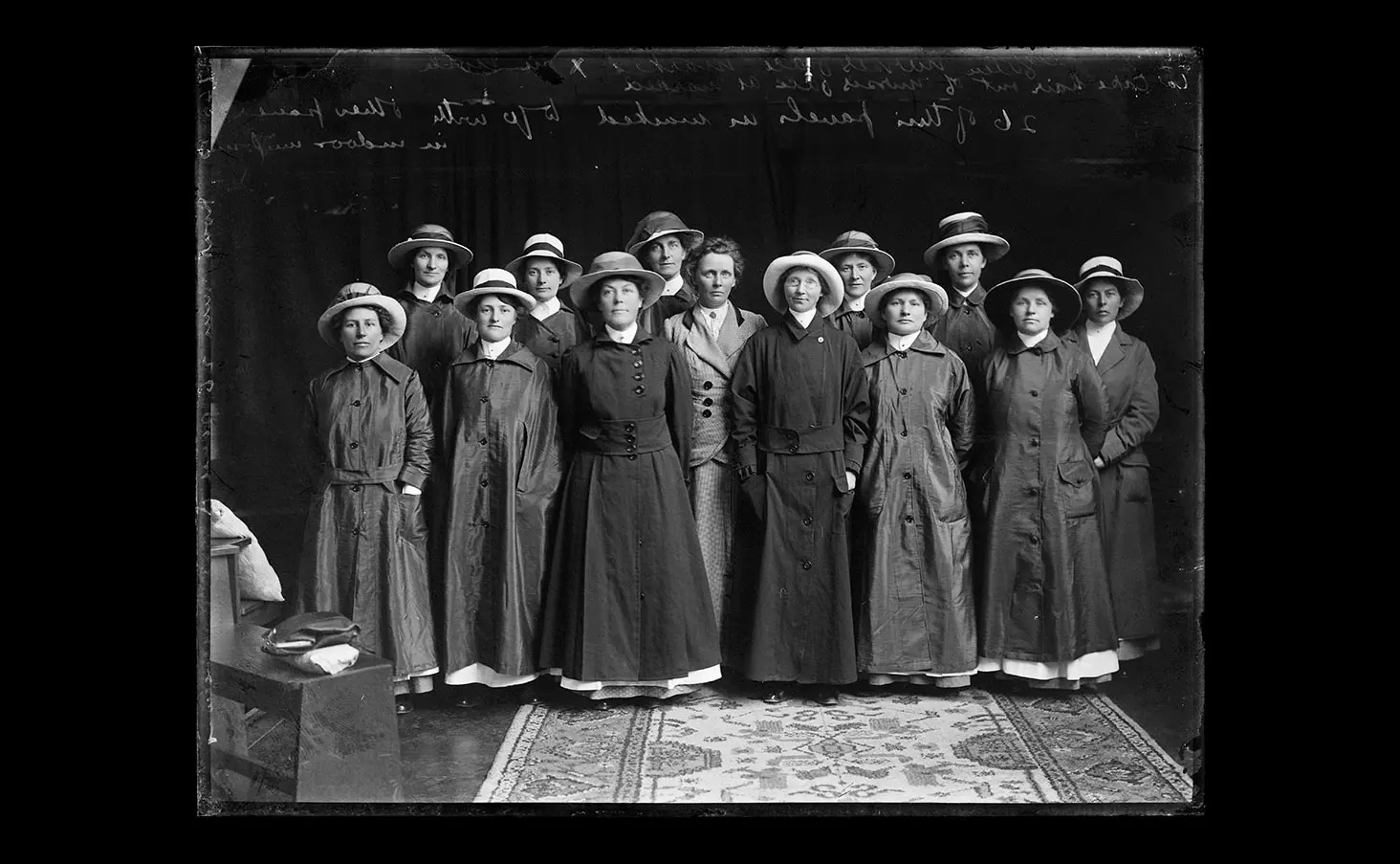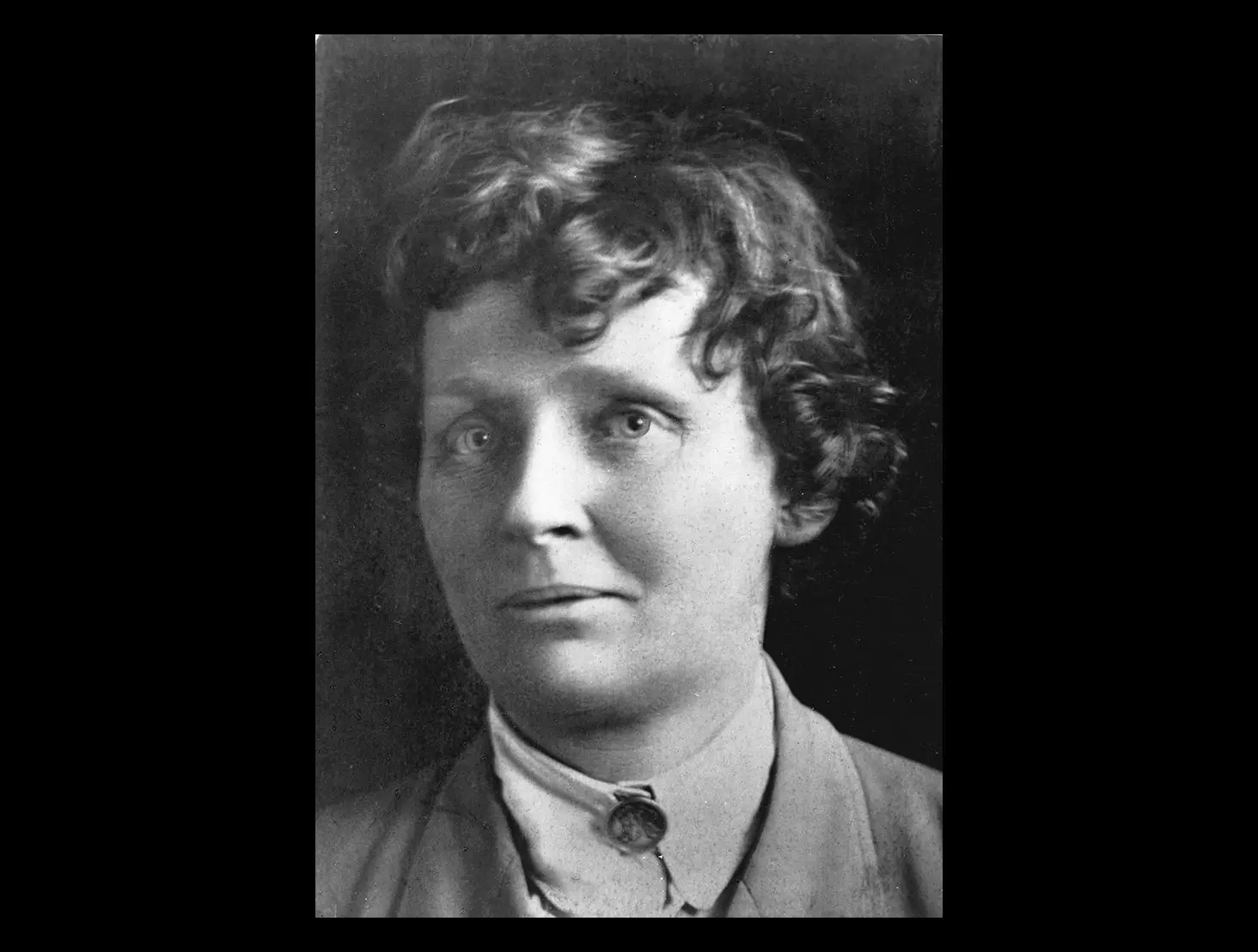Read a story about health campaigner Ettie Rout
New Zealand was in the grip of the First World War when photographer Stanley Andrew took this portrait of Ettie Rout’s Volunteer Sisterhood in his Wellington studio in 1915. The mostly untrained women were on their way to support New Zealand troops stationed in Egypt however they could, despite government opposition. Rout, seen hatless here in the centre of the picture, would follow later.
Australian-born Ettie Rout (1877–1936) was a socialist unfazed by conventions, particularly those applying to women. She was tall, fit and energetic, with no time for the constraints of fashion, including corsets. She was one of the first government-appointed reporters in the Supreme Court, using her advanced shorthand and typing skills to record proceedings, including commissions of inquiry. She’d set up her own secretarial business, had worked as a journalist and was heavily involved with the trade union movement.
In Egypt, the Volunteer Sisterhood assisted as service workers in hospitals and also ran canteens and recreational centres for the thousands of soldiers stationed there. But when Rout arrived, her greatest concern was with the venereal diseases rife among the troops who frequented local brothels. She battled mainstream morals, sexism and opposition to her straight-talking manner to push for disease prevention by the military authorities, without judging the men’s morality, but with little success. In 1917, she moved to London, where she extended her campaign directly to the New Zealand troops in England, providing soldiers with preventative kits containing condoms, ointments and disinfectants. In 1918, she set up a similar welfare service for Kiwi soldiers visiting Paris, including introductions to a safe brothel.
By the end of 1917, the New Zealand Army had adopted Rout’s kit, but during her lifetime she was not publicly acknowledged at home for her significant contributions to the health of the New Zealand troops. In fact, for a while after the war the government banned her books on sexual health from being published or sold here and decreed that newspapers would be fined £100 for even mentioning her name.
The French government, however, awarded Rout the Reconnaissance française medal for her work in Paris and with the French Red Cross in 1919 and 1920. King George V sent her a letter of commendation in 1920. At home, it took until the 1980s for her contribution to become widely known and celebrated, particularly after the publication of Jane Tolerton’s biography ‘Ettie’ in 1992. In 2008 in Tasmania, Rout’s birthplace, she was posthumously inducted into the Tasmanian Honour Roll of Women for services to health.
Story written by: Erena Williamson
Copyright: Turnbull Endowment Trust
‘An unforgettable heroine’
Ettie Rout returned once to New Zealand before her death in 1936. Her friend the novelist H. G. Wells described her as ‘an unforgettable heroine’. She commented to him once, ‘It’s a mixed blessing to be born too soon.’
Ettie Rout

